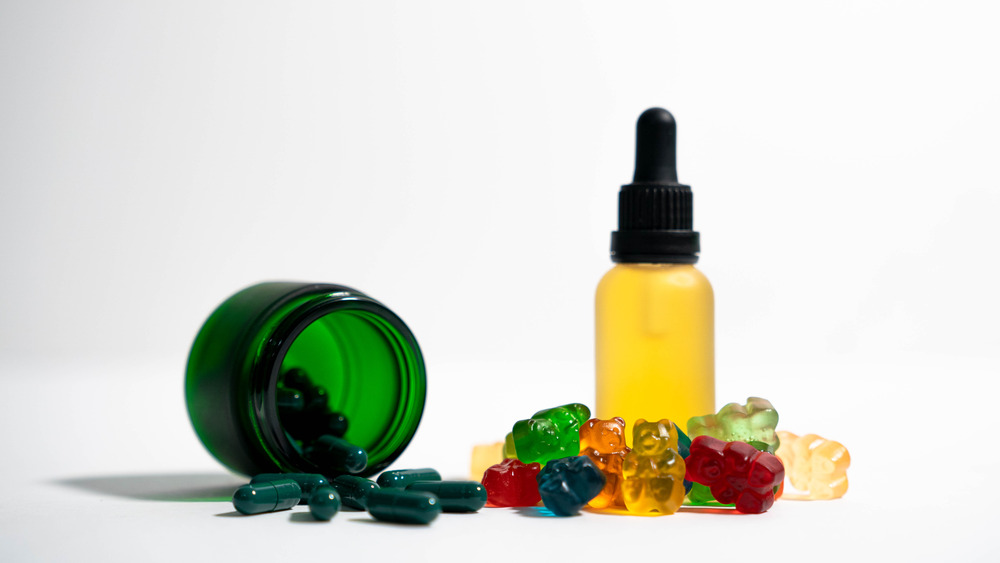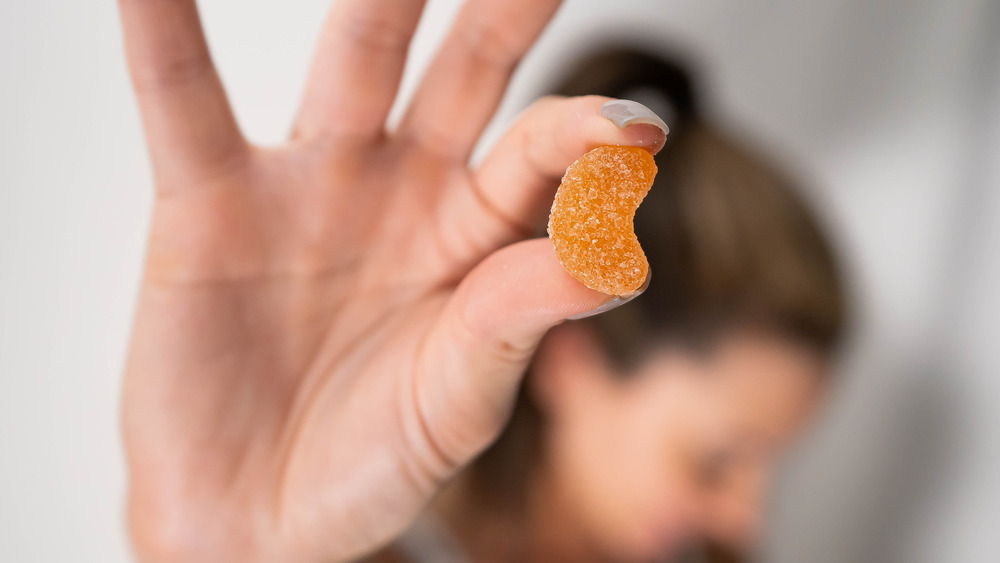What Really Happens When You Take CBD Gummies
You may have noticed an uptick in the hype over cannabidiol, or CBD, which is the second most prevalent, active ingredient of marijuana. By itself, CBD will not cause the same "high" effect you'd get when using marijuana, according to a report by the World Health Organization (WHO), which states, "In humans, CBD exhibits no effects indicative of any abuse or dependence potential.... To date, there is no evidence of public health related problems associated with the use of pure CBD."
According to Harvard Health Publishing, CBD can be used to treat conditions such as childhood epilepsy, anxiety, insomnia, and some pain conditions. Healthline reports that marijuana has been used as a pain treatment since 2900 B.C. and research suggests it can alleviate side effects from cancer treatments, as well as cancer-related pain. Additionally, due to its anti-inflammatory properties, CBD may help reduce acne, but more research is needed.
Each experience with CBD is unique
Before taking CBD gummies, there are some important factors to be aware of. Some side effects, including fatigue, diarrhea, and appetite changes, have been reported. Furthermore, CBD may interact with some prescription drugs, particularly those that come with a "grapefruit warning," so always speak with your doctor before trying a new supplement.
It is also recommended to research products before purchasing them. Dr. Jordan Tishler, member of the medical advisory board at cannabisMD tells HuffPost, "Many over-the-counter CBD products contain no CBD, or worse, may have dangerous ingredients in them like heavy metals or opiates." Unfortunately, anyone can sell CBD, as it is not currently FDA regulated, and because of this, Tishler suggests buying CBD from a state-regulated medical or recreational cannabis program.
Sara Jane Ward, assistant professor of pharmacology at Temple University Lewis Katz School of Medicine says that any CBD product, such as drops or gummies, will work, but the effectiveness depends on the product, individual, and dosage (via The Healthy). Ward says that dosing is based on individual experience and that first-time users should start at the lowest dose, and slowly work toward a therapeutic dose.


